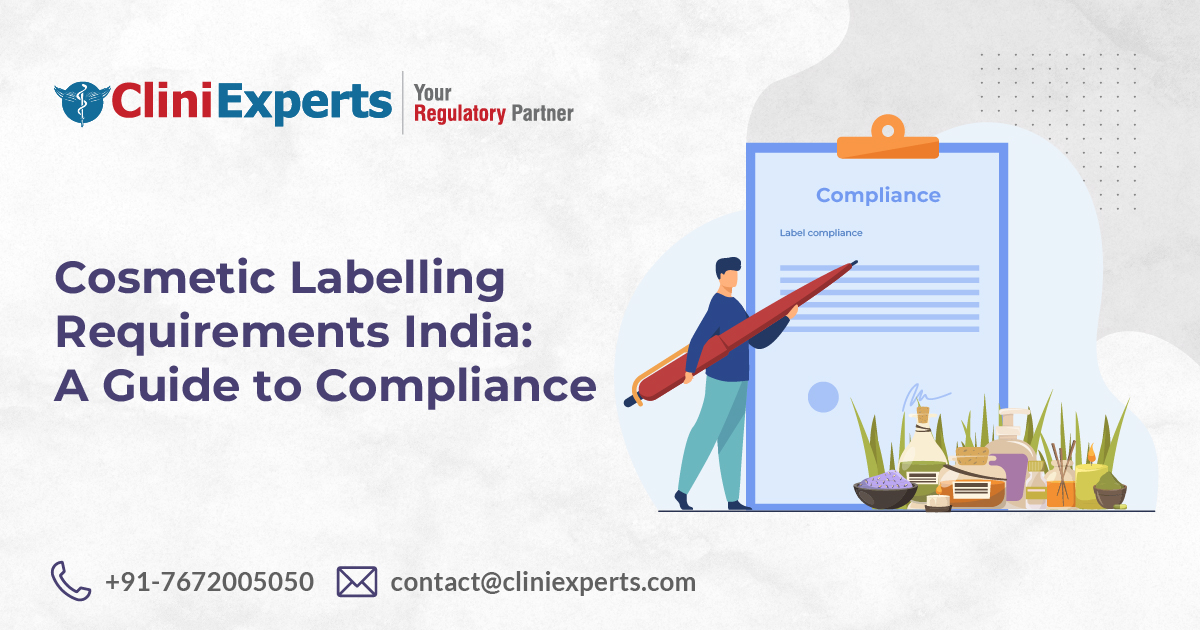Cosmetic Regulation in India
As per the Drug and cosmetic act 1940, “cosmetic” means any article intended to be rubbed, poured, sprinkled or sprayed on, or introduced into, or otherwise applicated to, the human body or any part thereof for cleansing, beautifying, promoting attractiveness, or altering the appearance, and includes any article intended for use as a component of cosmetic.
Cosmetic Regulation in India
The cosmetic products in India are regulated under the Drugs and Cosmetics Act 1940 and Rules 1945 and Labelling Declarations by the Bureau of Indian Standards (BIS). BIS sets the standards for cosmetics for the products listed under Schedule ‘S’ of the Drugs and cosmetics Rules 1945. BIS has also provided the specification for Skin Creams and Lipstick in the Indian Standards (IS) 6608:2004 and 9875:1990 respectively.
According to IS 6608:2004, all the raw materials requiring test for heavy metals have been so tested and comply with the requirements, then the manufacturer may not test the finished cosmetic for heavy metals and arsenic.
The Rule 134 of Drugs and Cosmetics Rules has laid down restrictions on use of cosmetics containing dyes, colours and pigments other than those specified by the Bureau of Indian Standards (IS: 4707 Part 1 as amended) and Schedule Q. The Rule 145 of the Drugs and Cosmetics Rules prohibits use of lead and arsenic compounds in cosmetics for the purpose of colouring. Rule 135 prohibits import of cosmetics in which a lead or arsenic compound has been used for the colouring purpose. Rule 145 D and 135 A prohibits manufacture and import respectively of cosmetics containing mercury compounds.
Registration of Import of Cosmetics
A Gazette Notification G.S.R 426(E) dated 19 th May 2010 has been issued by the Government of India for amending the Drugs & Cosmetics Rules, 1945 providing for registration of import of cosmetics into the Country. This provision was to come into effect from the 1st April, 2011. But in view of the various possible difficulties apprehended by the stakeholders, its implementation was deferred till the 31 st March, 2013.
All cosmetic products that are imported for sale in India now need to be registered with the Central Drugs Standard Control Organisation (CDSCO) which has been appointed as the licensing authority for the purpose of these rules. This new ‘registration’ requirement is primarily to regulate indiscriminate import of beauty and personal care products by traders with no accountability for contents and no mechanism to fix responsibility in case a consumer is not satisfied with the quality. The new regulation is an attempt to check the sale of sub-standard cosmetic products and also to harmonise import requirements with products manufactured in India.
What is the Registration Procedure?
The trade mark owner, who has no manufacturing unit in India but intends to sell his goods by way of import through their appointed importers/distributors/marketers in India, is now required to obtain registration certificate to continue with their marketing activities in India. An application for registration on Form-42, along with all requisite documents needs to be submitted to Drugs Controller General (I), CDSCO, FDA office in New Delhi.
How should one apply?
An application for the issue of a Registration Certificate for cosmetics intended to be imported into India need to be made on a specified form, i.e. Form 42 either by:
- The manufacturer himself having registered office in India or
- by his authorised agent or
- importer in India or
- by the subsidiary in India authorised by the manufacturer
Further, the documents to be provided along with the application include:
- A request letter by the applicant on the letterhead of the importer or the authorised agent applying for the registration duly stamped and signed by the authorised person.
- Form 42 – This requires details such as the location of the actual manufacturing sites of the products. A single application can cover many brands (read Trademarks/brand names), many variants; many pack sizes and different manufacturing units corresponding to the products applied.
- Proof of payment of requisite fee: Challan indicating the payment of registration fee of USD 2000 or its equivalent in Indian rupees for each ‘brand’ of cosmetic product and USD 50 for each variant.
- Power of Attorney (if the application is being submitted by an authorised agent of the manufacturer. This document needs to be apostilled or legalised by the Indian embassy in that country)
- Schedule D III (details of the cosmetic products to be imported including the chemical and safety data)
- Label and art works thereof (this will contain the details of the actual manufacturer and in cases where the manufacturer is not the brand name owner, the label will at least state, ‘manufactured in XYZ country’)
- Free Sale Certificate (FSC)/Marketing Authorisation
- Manufacturing License (and attested English translation if not in English), if any: If there are multiple manufacturers for a single product, all manufacturers need to provide these documents
- Product specifications and testing protocols: details of ingredients used, quality data etc.
- List of countries where Market Authorisation or import permission or
registration has been granted - Package inserts, if any (copies of any leaflets, product specification data that goes inside the packaging has to be provided. No specific requirement has been listed, it is suggested to provide information about the potential side effects/allergic reactions and other safety concerns and remedies available)
- Copies of the information about the brands, products and manufacturer
What is the timelines for processing of application?
Within 90 days from the date of submission of the application form and submission of the required documents (especially details required with schedule D III), the registration certificate will be issued.
What is the validity of the registration certificate?
Registration certificate for import of cosmetics is valid for a period of three years from the date of its issuance.
With a view to implementing the provisions of the aforesaid notification and facilitate the registration process for import of cosmetics, there are various guidelines/clarifications and requirements for the grant of Registration Certificate.
Cliniexperts has a team of experienced regulatory professionals who help smoothen down the process of getting the Registration Certificate. For more details/inquiry send us your details here and we shall get back to you at the earliest.
Manufacturing of Cosmetics
The procedure to be followed in order to manufacture cosmetics in India has been laid down under the Drugs and Cosmetics Rules, 1945. A license has to be obtained from a Licensing Authority appointed by the State Government to manufacture any of the cosmetics classified under Schedule M-II. The application has to be submitted in Form 31 along with a license fee and an inspection fee. The manufacturer has to ensure that the production is done in the presence of a competent and qualified technical staff. The Licensing Authority is required to order an inspection of the whole premises where the operations are to be carried out, before granting or refusing the license. The inspectors are appointed under the Act are required to submit a detailed report to the Licensing Authority which can then decide whether to grant the license or not.
Reference:
- The drugs and cosmetics act and rules. The Ministry of Health and Family Welfare. The Government of India. Available on- https://cdsco.gov.in/opencms/export/sites/CDSCO_WEB/Pdf-documents/acts_rules/2016DrugsandCosmeticsAct1940Rules1945.pdf.
- Guidelines on Registration of Import of Cosmetics. Available on-https://cdsco.gov.in/opencms/export/sites/CDSCO_WEB/Pdf-documents/cosmetics/Guidelines_on_Registration_of_Import_of_Cosmetics.pdf
. Accessed on 15th April 2015.
Recent Posts
Organic Food Labelling In India| Certification, and Import of Organic Food in India

This Article is All About Organic Food Labelling In India and Certification, and Import of Organic Food in India. Explained in Detail About What is Organic Food labelling? Summary Short Description Wi..
Cosmetic Label Compliance India : A Guide to Compliance

Introduction Looking for Cosmetic Label Compliance India? Are you a cosmetic manufacturer or importer navigating the complex world of Indian regulations? Ensuring your product labels comply with the l..
Clinical Investigation Approvals: An Overview of Forms MD-22 and MD-23

Summary Short Description Strict regulatory protocols govern clinical investigations for medical devices. Central to this process are forms MD-22 and MD-23. Form MD-22 is an application to Central Lic..
HAVE A QUERY?
REACH US!Office
New Delhi
Unit No. 324 & 325, City Centre Mall, Plot No. 5, Sector 12, Dwarka, India - 110075
+917672005050
Bengaluru
RMZ Galleria, 1st floor, Ambedkar Colony, Yelahanka, Bengaluru, Karnataka, India – 560064
Call us on
Sales: +91 7672005050
Reception: +91-11-45214546
Timings
9 am to 6 pm (Monday to Friday)


